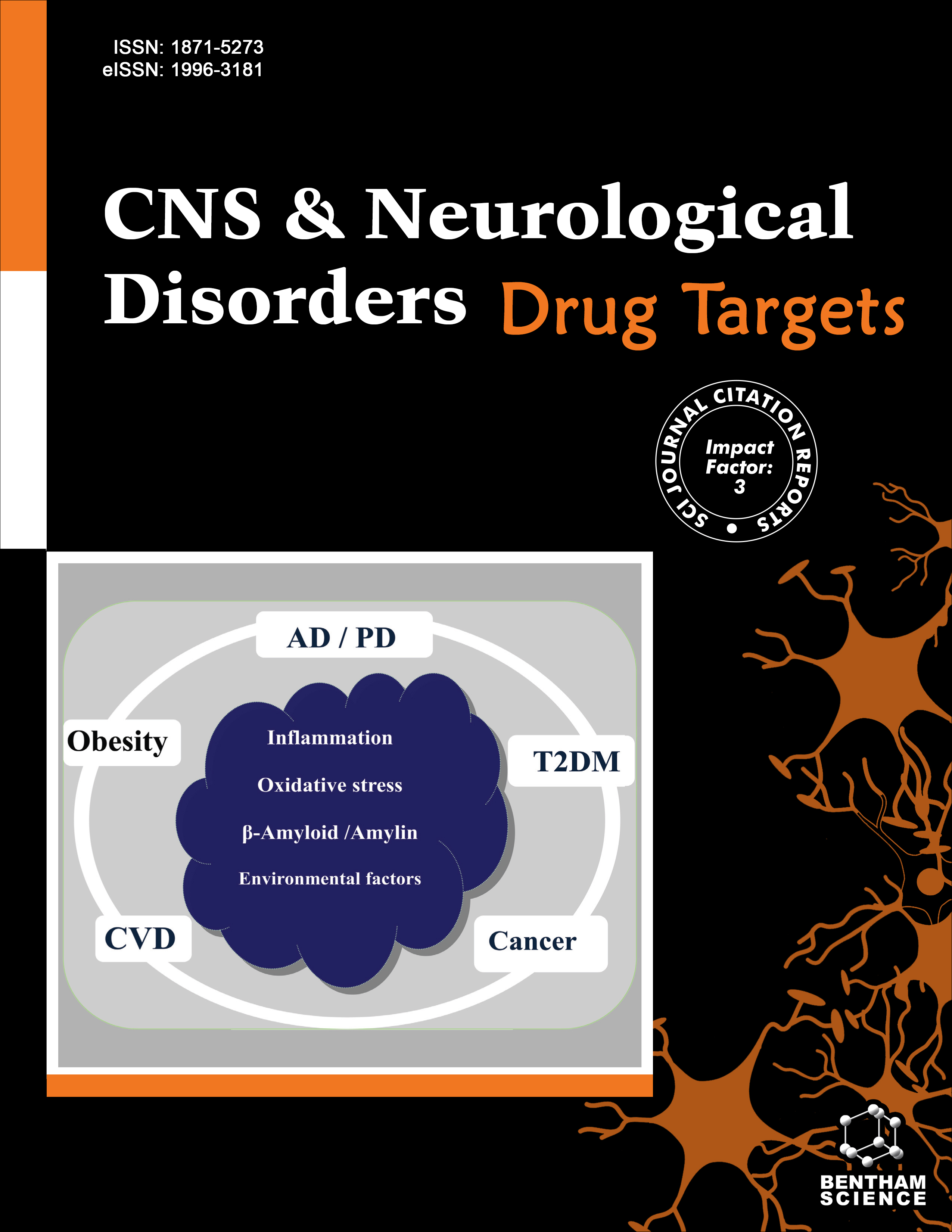-
oa Editorial [Hot Topic: Drug Discovery for CNS Disorders: From Bench to Bedside (Guest Editor: Tiago Fleming Outeiro)]
- Source: CNS & Neurological Disorders - Drug Targets, Volume 9, Issue 6, Dec 2010, p. 668 - 668
-
- 01 Dec 2010
Abstract
The recent biological revolution, spurred by the various genome projects, will lead to novel discoveries of the basic principles governing biological processes in the cell and, as a consequence, to a thorough understanding of life in general. The aging of the human population has uncovered a panoply of novel disorders which threaten the overall balance of modern societies. Among these diseases, neurodegenerative conditions play a central role because of their highly debilitating nature and the tremendous societal costs associated. Diseases such as Alzheimer's, Parkinson's, Huntington's, or amyotrophic lateral sclerosis are becoming more and more common. Currently, there are no effective therapeutic strategies to prevent the onset or to stop progression of these diseases, and symptomatic treatments are reasonably successful only in Parkinson's disease. While tremendous progress has been made in the understanding of the underlying mechanisms associated with these disorders, it is essential to devote more attention to their molecular basis, in the hope that we can open novel avenues for therapeutic intervention. The present issue focuses on the current status of drug discovery for central nervous system disorders with the goal of contributing to the closure of the gap between the bench and bedside. Numerous questions demand urgent answers: Is aging an irreversible process? Can we interfere with or prevent the accumulation of toxic protein intermediates? Can we restore the normal function of cellular quality control mechanisms? Can we identify novel targets and novel therapeutic opportunities? Although the answers to these questions remain elusive, recent findings at the molecular level in these different diseases are opening whole new avenues for therapeutic intervention that are only starting to be explored. The review articles included describe the new paradigms under consideration for targeting the broad spectrum of human neurodegenerative diseases. We believe that this issue represents a contemporary and comprehensive view on how different molecular aspects of disease can be used as targets for drug discovery, and we hope the broad readership of the journal find these articles informative and inspiring.


